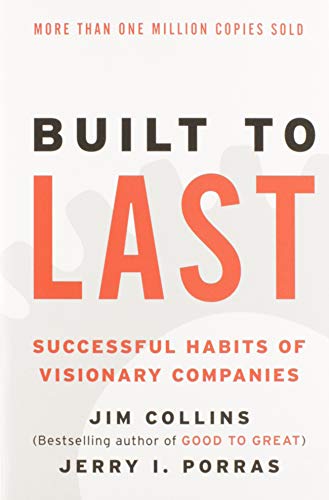The Infinite Game
Think you might want to read this book?
In this book, Simon Sinek draws a line between organizations with short-term thinking/goals and those playing The Infinite Game. He argues that those leading with future generations in mind will create cultures that will weather hard times, inspire others, and build organizations that will thrive. If you naturally think about endowments and succession plans, then you will be affirmed by this book. If most of your measures of success are in a single school year or five-year plans, then this book will push you to think differently.
What Would Socrates Ask?
Can you tailor some sections of your report cards to indicate that learning is an infinite game?
Is the mission statement of your school a finite or infinite one?
What if all Mission statements included an element of infinite purpose?
How can you both run a phenomenal school and positively impact your community at the same time?
Does your school put faculty and staff wellness as a top priority?
Research
The average life of a company in the 1950s was just over 60 years. Today it is less than 20 years. According to a 2017 study by Credit Suisse, disruptive technology is the reason for the steep decline in company life span.
Concepts
Any leader who wants to adopt an infinite mindset must follow five essential practices:
Advance a Just Cause
Build Trusting Teams
Study your Worthy Rivals
Prepare for Existential Flexibility
Demonstrate the Courage to Lead
A Just Cause must be:
For something- affirmative and optimistic
Inclusive- open to all those who would like to contribute
Service oriented- for the primary benefit of others
Resilient- able to endure political, technological and cultural change
Idealistic- Big, bold and ultimately unachievable.
Ethical Fading: a condition that allows people to act in unethical ways in order to advance their own interests.
Cause Blindness: we become so wrapped up in our cause or so wrapped up in the “wrongness” of the other’s cause, that we fail to recognize their strengths or our weaknesses
Quotes from the author
“Great leaders are the ones who think beyond “short term” versus “long term.” They are the ones who know that it is not about the next quarter or the next election; it is about the next generation. Great leaders set up their organizations to succeed beyond their own lifetimes, and when they do, the benefits-for us, for business and even for the shareholder-are extraordinary.”
“Infinite games have infinite time horizons. And because there is no finish line, no practical end to the game, there is no such thing as “winning” an infinite game. In an infinite game, the primary objective is to keep playing, to perpetuate the game.”
“A finite-minded leader uses the company’s performance to demonstrate the value of their own career to enhance the long-term value of the company.”
“As for us, those who choose to embrace an infinite mindset, our journey is one that will lead us to feel inspired every morning, safe when we are at work and fulfilled at the end of end day. And when it is our time to leave the game, we will look back at our lives and our careers and say, “I lived a life worth living.” And more important, when imagining what the future holds, we will see how many people we’ve inspired to carry on the journey without us.”
“It is the Just Cause that we are working to advance that gives our work and our lives meaning. A Just Cause inspires us to stay focused beyond the finite rewards and individual wins. The Just Cause provides the context for all the finite games we must play along the way. A Just Cause is what inspires us to want to keep playing.”
“… most Americans can recite with ease “all men are created equal” and can usually rattle of the three tenets of “Life, Liberty, and the pursuit of Happiness.” These words are indelibly marked on the cultural psyche. Invoked by patriots and politicians alike, they remind Americans of who we strive to be and the ideals upon which our nation was founded. They tell us what we stand for.”
“A leader who wishes to build an organization equipped for the Infinite Game must never make decisions solely to boost their own compensation.”
“Even well-intended finite-minded leaders often have the perspective of “make money to do good.” An infinite perspective on service, however, looks somewhat different: ‘Do good making money.’”
“Companies exist to advance something-technology, quality of life or anything else with the potential to ease or enhance our lives in some way, shape or form.”
“...leaders are not responsible for the results, leaders are responsible for the people who are responsible for the results. And the best way to drive performance in an organization is to create an environment in which information can flow freely, mistakes can be highlighted and help can be offered and received.”
Quotes from others
“We do not think in quarters. We think in generations.” - Carl Elsener, Victorinox CEO
“A business that makes nothing but money is a poor kind of business.” - Henry Ford
Gateways to further learning
Referenced books with the potential to impact leading and learning in education
The applicability of this book to education is ….
Resources










